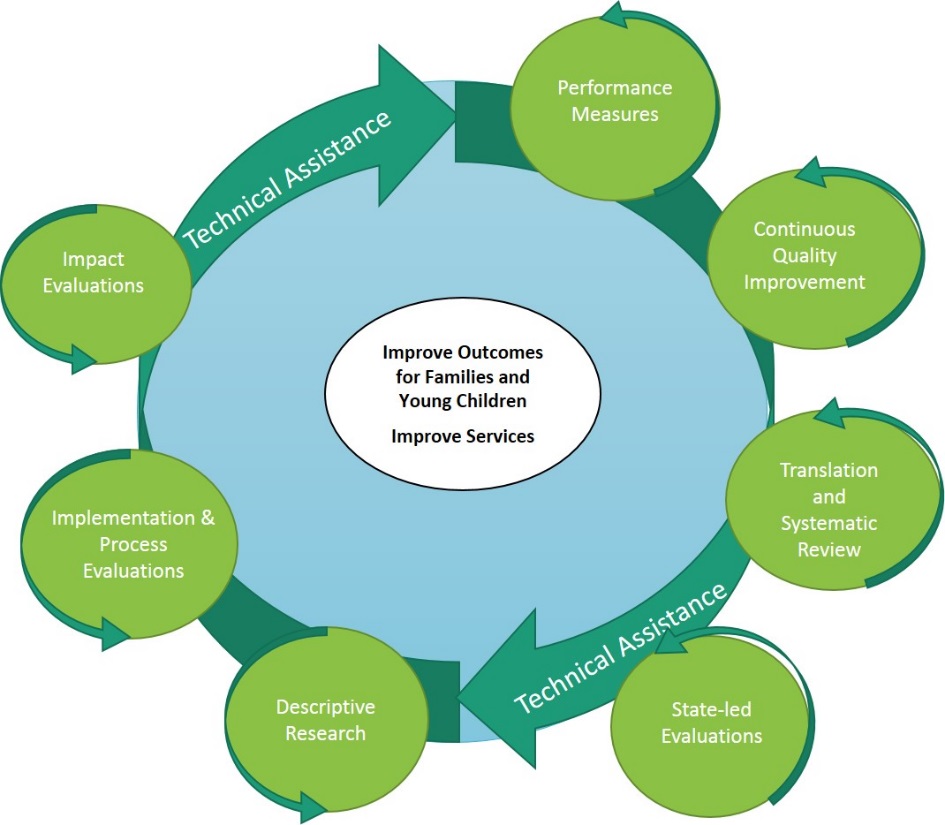MIECHV Learning Agenda
Attachment E - MIECHV Learning Agenda.docx
Multi-Site Implementation Evaluation of Tribal Home Visiting
MIECHV Learning Agenda
OMB: 0970-0521
Document [docx]
Download: docx | pdf
Division
of Home Visiting and
Early
Childhood Systems![]()


The Maternal, Infant, and Early Childhood Home Visiting Program
Learning Agenda
From its inception, the Maternal, Infant and Early Childhood Home Visiting (MIECHV) Program, which is administered by HRSA, in partnership with the Administration for Children and Families (ACF), has been engaged in a broad portfolio of research, evaluation, and performance measurement. The evidence generated by each of these activities contributes unique perspectives to HRSA and ACF’s understanding of the Program.
HRSA and ACF have developed a formal Learning Agenda to build and utilize evidence and evaluation findings to inform decision-making and improve program performance.
 The
MIECHV Learning Agenda diagram (right) seeks to depict how different
types of investigation can be used concurrently and in tandem to
improve home visiting services and ultimately family outcomes.
The
MIECHV Learning Agenda diagram (right) seeks to depict how different
types of investigation can be used concurrently and in tandem to
improve home visiting services and ultimately family outcomes.
Existing Learning Agenda activities include:
translational research and systematic review (Home Visiting Evidence of Effectiveness),
State- and Tribal-led evaluations,
descriptive research (Career Trajectories, Family Level Assessment and State of Home Visiting, Assessment and Mapping of Community Connections, Touchpoints for Addressing Substance Abuse in Home Visiting)
implementation and process evaluation (Multi-Site Implementation Evaluation of Tribal Home Visiting),
impact evaluation (Mother and Infant Home Visiting Program Evaluation),
performance measurement, and
continuous quality improvement (Home Visiting Collaborative Improvement and Innovation Network)
Each of these activities provides important, but distinct, information about the program to help improve MIECHV’s effectiveness and to build the broader knowledge base regarding home visiting. This work is supported by a comprehensive portfolio of both programmatic and evaluation technical assistance (circular arrows). And at the center of all of this work is the is the ultimate goal of the Program – to improve services and outcomes for families.
For more Information Contact: Kyle Peplinski, [email protected]

| File Type | application/vnd.openxmlformats-officedocument.wordprocessingml.document |
| Author | Windows User |
| File Modified | 0000-00-00 |
| File Created | 2021-01-13 |
© 2026 OMB.report | Privacy Policy